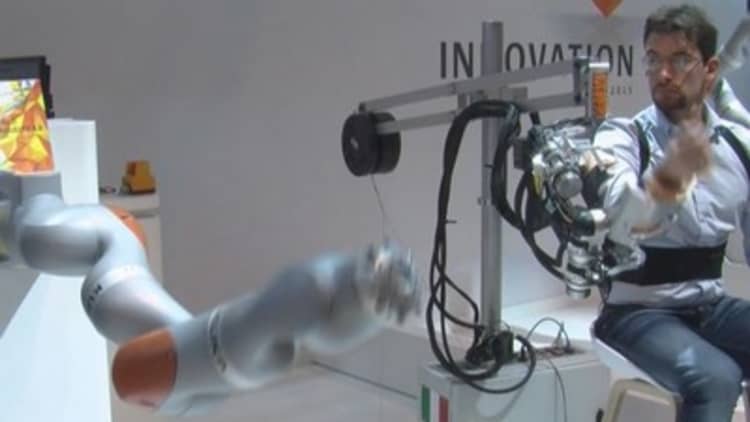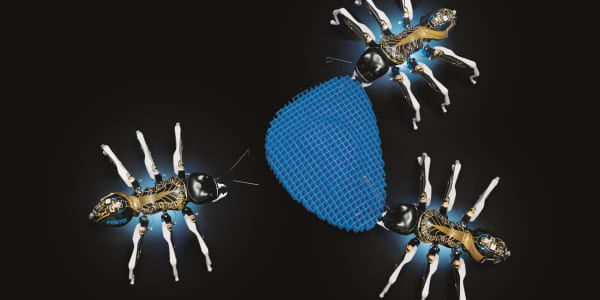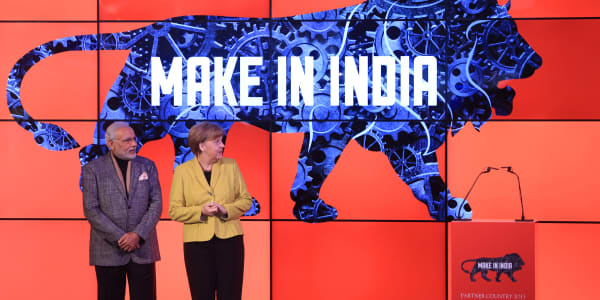
From household chores like vacuuming, to assisting in surgery and on the factory floor, robots are increasingly becoming a part of everyday life.
It's a trend that is met with both excitement about the potential transformation of society, and fear about a loss of jobs -- and even possibly the end of civilisation.
"If you look back at history, you can see time and time again that the introduction of machines and technology has been met with fear – if you substitute a human with a machine it will be destructive," said Hal Sirkin, a senior partner at Boston Consulting Group (BCG) and co-author of the firm's series of reports on the shifting economics of global manufacturing.
Read MoreHollywood's robots get a life off screen
"But this hasn't happened yet and it will be same with robots," he told CNBC. "The machines we are talking about today are not at risk of taking over the world – down the road that could be an issue and it is not something that can be ruled out."
Indeed, it is a concern that has been voiced by some high-profile names in recent months.
Nobel Prize-winning economist Robert Shiller told CNBC earlier this year that technology "seems to be changing life in such a fundamental way" that it has people thinking about where they will be in 30 years' time.
Meanwhile, U.K. scientist Stephen Hawking told the BBC in December that the development of full artificial intelligence (AI) could "spell the end of the human race," and last week Human Rights Watch and Harvard Law School called for a ban of fully autonomous weapons by international treaty.
No going back
Although robots, in some shape or form, have been used for decades in industries such as automobiles, analysts say a new generation of flexible, sensing and in some ways human-like robots have the potential to change the landscape of many industries.
The International Federation of Robotics (IFR) estimates that 225,000 industrial robots were sold last year, up 27 percent from 2013.
Read MoreYour next workmate could be a robot
And according to BCG, global spending on robots is expected to jump from just over $15 billion in 2010 to about $67 billion by 2025, driven by falling prices and improvements in performance.

But a fear that robots are about to take over our jobs is not always justified, some experts say.
"The fact is the following: the three highly-robotized economies of the world -- Germany, Japan and South Korea -- have the lowest unemployment levels," said Ulrich Spiesshofer, CEO of Swiss automation firm ABB, told CNBC this week.
The unemployment rate stands at 4.8 percent in Germany, 3.5 percent in Japan and 3.9 percent in South Korea. The three countries share some of lowest levels of unemployment in the Organisation for Economic Cooperation and Development.
"So the right combination between robots and humans safeguards jobs and safeguards humans," Spiesshofer added, speaking at a major industrial fair in Germany.
ABB was just one firm showcasing so-called "collaborative robots," which can work safely with humans on the factory floor, at Hannover Messe, the world's biggest industrial and technological fair.
Not a replacement
Elaine Chen, senior lecturer at MIT Sloan School of Management, added that job loss due to adoption of robotics is a real concern, but is not always based on the right set of assumptions.
"Robots are not replacements for people," she told CNBC. "People are massively more versatile and adaptable than the smartest robots that researchers and robotics companies can create today."
But robots can bring benefits to an economy -- especially ones with an aging workforce such as Japan, Europe and the U.S. – such as increased productivity, the ability to do mundane, repetitive tasks, and lower costs.
"Without robots, Europe will not survive competitively," Olaf Kramm, general manager for machinery manufacturer Fanuc Germany, told CNBC at Hannover Messe.
"Zero robots are not possible. We have high labour costs so we have to automate production to stay competitive."





